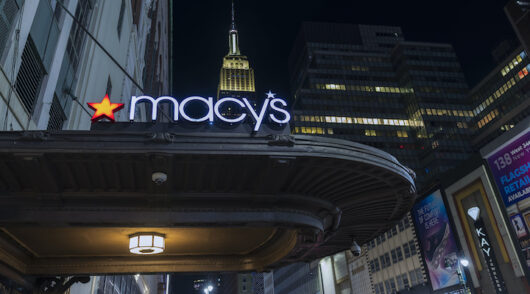 The owner of healthcare retailer Australian Premium International, Yujie Xu, saw a marked increase of Chinese tourists shopping at his vitamin and bubble tea stores and Priceline Pharmacy during the first week of October this year, otherwise known as Golden Week.
The owner of healthcare retailer Australian Premium International, Yujie Xu, saw a marked increase of Chinese tourists shopping at his vitamin and bubble tea stores and Priceline Pharmacy during the first week of October this year, otherwise known as Golden Week.
Golden Week is a national holiday in China, and many workers head overseas, including to Australia. The influx of travellers drove a 640 per cent increase in the number of transactions and a 480 per cent increase in total sales at Xu’s Priceline store in Franklin, Melbourne.
Xu said he targeted Golden Week promotions at Chinese tourists to drive foot traffic to his store. He stocked up on popular products, including vitamins and infant formula, ahead of the event to ensure he didn’t run out of stock, a semi-regular occurrence at other times of the year, too, since Xu’s Priceline store attracts tour groups from China as well as local customers.
“[Chinese tourists’] buying power and the amount of goods they actually purchase… it’s always maximum volume,” Xu told IRW.
“They do a lot of research and they know what they want before they get here. A lot of the time they’ll know better than us what the product is and what it’s for – they’re very good at [doing their research].”
The next big Chinese holiday, Chinese New Year, is in early February, and Xu expects to see similar sales volume to that of Golden Week. In both cases, he said, sales volumes during these Chinese holidays outpaced Christmas trading in his vitamin stores.
Xu’s experience reflects data from Alibaba-backed mobile payment platform Alipay, which found that transactions on the platform increased by 105 per cent during Golden Week, and saw Australia ranked ninth globally in transaction volume.
“This year, Australian businesses have embraced the true spending power of Chinese visitors and it’s pleasing to see them take simple steps to appeal to this audience,” Alipay ANZ country manager George Lawson said.
However, research from global think-tank Coresight Research found that while Chinese tourists are travelling more often, they are spending significantly less per trip, especially on shopping.
Respondents to the survey reported an 18 per cent fall in total trip spending across shopping, food and beverages, sightseeing, and entertainment, with a particularly large decline of 24 per cent in average spending on shopping per trip.
The beauty sector is one exception, with 71.5 per cent of respondents noting they buy beauty items abroad and a further 56 per cent stating they planned to increase their spend on luxury beauty products during their next trip.





